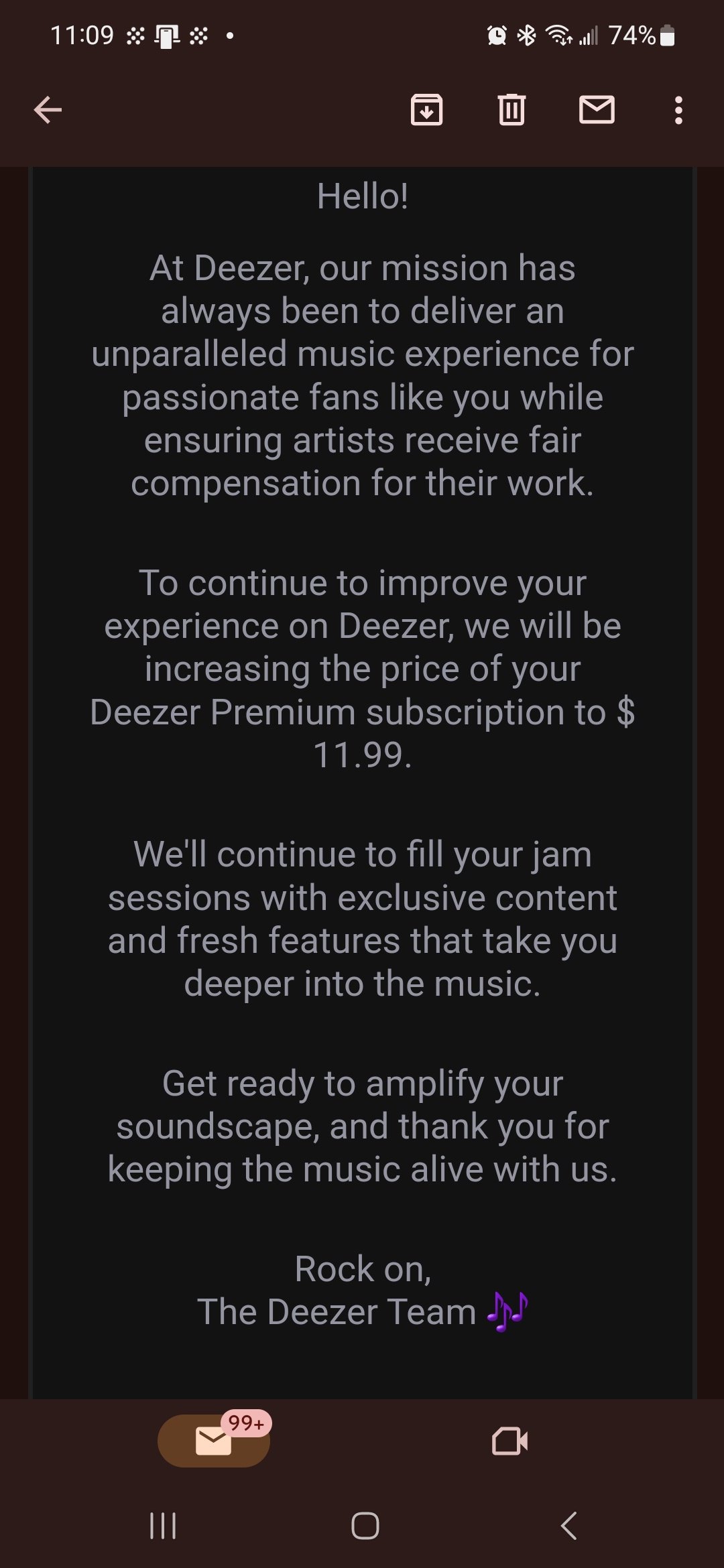this post was submitted on 17 Nov 2023
230 points (91.1% liked)
Piracy: ꜱᴀɪʟ ᴛʜᴇ ʜɪɢʜ ꜱᴇᴀꜱ
55690 readers
4 users here now
⚓ Dedicated to the discussion of digital piracy, including ethical problems and legal advancements.
Rules • Full Version
1. Posts must be related to the discussion of digital piracy
2. Don't request invites, trade, sell, or self-promote
3. Don't request or link to specific pirated titles, including DMs
4. Don't submit low-quality posts, be entitled, or harass others
Loot, Pillage, & Plunder
📜 c/Piracy Wiki (Community Edition):
💰 Please help cover server costs.
 |
 |
|---|---|
| Ko-fi | Liberapay |
founded 2 years ago
MODERATORS
you are viewing a single comment's thread
view the rest of the comments
view the rest of the comments


I remember people giving Spotify shit for increasing their monthly price from 10 to 11. It was the first price hike in over a decade. That doesn’t seem devastating or bad or wrong.
Compare it to something like Disney plus and how drastically they increased the price since service introduction
I'm OK with the increase in price if I knew that extra money was actually going to the artists. But how do we know?
The extra money is probably going into server upkeep, software development, etc., not to artists.
If you want to support artists, Spotify definitely is among the worst choices, while Deezer isn’t great but not horrible either. A little while ago I compiled the most official numbers I could find for any service that I could find. Now mind you, they are a little older (2-ish years) and I cannot remember the source, so take those numbers with a grain of salt but here they go:
Per 1000 streams an Artist gets on average:
• $4.02 on Amazon Music
• $4.37 on Spotify
• $6.76 on both Deezer and YouTube Music
• $7.35 on Apple Music
• $12.50 on Tidal
• $19.00 on Napster
• $38.16 on Quobuz
As I said, the numbers are most likely not the most accurate anymore, the process for these services have changed a little since. However, they might still be interesting enough to know. Maybe someone is bored enough to search the web for more up to date data.
For consumers it might also be interesting to add, that Spotify and YouTube Music, while costing the same as most of the other services (excluding Tidal HiFi Plus and Quobuz), offer a significantly worse audio quality than any other service (aka no lossless audio) and that Tidal‘s expensive HiRes audio tier uses a codec (MQA), that is proven to be terrible and mostly snake oil.
In short: If you want to support artists, stay away from Spotify or amazon. If you want the best audio quality, stay away from Spotify, YouTube Music or Tidal and maybe Deezer (no support for HiRes lossless. Although to be fair, CD-Quality is enough for almost anyone). If you want both and don’t mind paying a little more: use Quobuz
I wish there could be good, honest transparency on these figures. Figuring out which streaming service actually best funds musicians is almost like playing with a Ouija board.
Sadly. Although, admittedly, feature selection does rank higher than that for me, so most services are already out of the question for me, based on that, even if they‘d pay the artists better
I have never heard of quobuz before, that's awesome that they offer that much. The main reason I use deezer is because of my dj business. I can create the Playlist in deezer, then download the whole list at once with deemix for gigs. I'll have to see if quobuz has a download option.
Spotify is continually reducing the amount they give to artists.
That's easy to know, actually. Spotify pays 70% of revenue to rights holders, and keeps 30%. Hence an increase of $1 will mean $0.30 for Spotify, and $0.70 to rights holders.
https://labelgrid.com/blog/royalties/spotify-pay-per-stream/
Rights holders ≠ artists
This is true, yes, but the same applies for all streaming services.
It's kind of funny how the labels have basically dodged any blame in the public eye, in favour of having Spotify be considered the enemy of artists in this case.